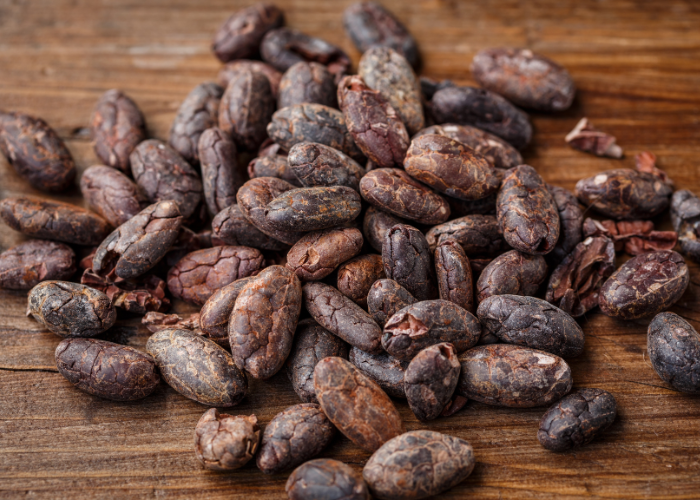The geopolitics of cocoaBY DOMENICO LETIZIA
- 26 September 2023
- Posted by: Competere
- Category: SUSTAINABLE NUTRITION

Article published in Italian in the newspaper La Ragione
Experts from the think tank Competere.eu and researchers from the organization Mighty Earth have released and published interesting data and statistics on world cocoa production. According to their report, 75 percent of the world’s cocoa comes from West Africa, specifically from the Ivory Coast and Ghana. Europe currently consumes about 59% of the cocoa produced by Côte d’Ivoire, and numerous environmental experts and activists denounce the unsustainability of intensive cultivation which is responsible for the deforestation of the land. Côte d’Ivoire and Ghana have in fact lost 94% and 80% of their forest heritage respectively. Another problem that the governments intend to tackle is the redistribution of the wealth produced by the few multinationals in the sector. Both countries have thus signed a public-private partnership agreement with major cocoa and chocolate companies that aims to make the entire supply chain sustainable. Thanks to the synergy between the two African countries, the traceability of local production has reached 72% of the overall total, and the figures have also been confirmed by the World Cocoa Foundation.
Despite these successes and new technological opportunities for cocoa harvesting and production, there is still much to be done and European regulations support this. In June 2023, the European Union adopted the regulation against deforestation with the aim of implementing production and cultivation methods linked to the green economy and the circular economy. This cross-cutting product policy applies to several resources that have proven to contribute to deforestation over the past decades: cocoa, cattle, coffee, palm oil, rubber, soya, and wood. The European regulation requires that, before entering the European market, products containing these resources must prove that they do not contribute to deforestation.
Ghana and Côte d’Ivoire’s international pressure on the cocoa trade aims to create a stabilization fund to mitigate the effects of fluctuations in the international price of the commodity, ensuring higher revenues and earnings for smallholders and producers, relaunching local education campaigns against the use of child labour, and curbing the black-market phenomenon. West African cocoa and Turkish hazelnuts are crucial raw materials to produce many spreads. In those countries, multinationals employ underpaid laborers and refugees for seasonal agricultural work and the international political community is working to stem this aberrant phenomenon that links poverty and exploitation to war.
In the process of legal and commercial adaptation to the new methods of cocoa production and cultivation, the Italian production system is also particularly important for promoting and enhancing national excellence in the pastry, ice cream, and confectionery sector, as well as for enhancing the transfer of technology and the export of agricultural machinery in terms of know- how.
About the author
Domenico Letizia holds a degree in History from the University of Naples ‘Federico Il’. As a Journalist and Communication Manager, he writes for the national daily La Ragione, the daily L’Opinione delle Libertà, the economic and financial magazine Money.it, and the geopolitical magazine Atlantis. He is also the Media Relation Manager of the Future Food Institute, former Head of the Press Office of SEALOGY – the blue economy exhibition at Ferrara Fiere – and Head of the Press Office of the Festival of European Geopolitics (Mazzanti Editori, Confindustria and Regione Veneto).
.
Read EUDR and Chocolate: will the industry be able to adapt? >>>
